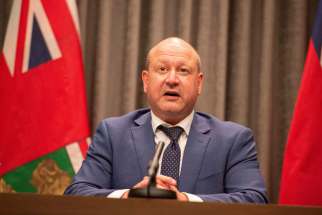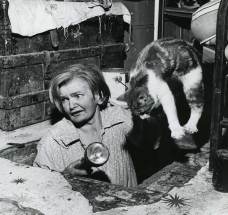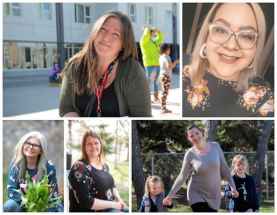Labours of love Motherhood is a full-time job, but moms in the caring professions are truly never off the clock
Read this article for free:
or
Already have an account? Log in here »
To continue reading, please subscribe:
Monthly Digital Subscription
$0 for the first 4 weeks*
- Enjoy unlimited reading on winnipegfreepress.com
- Read the E-Edition, our digital replica newspaper
- Access News Break, our award-winning app
- Play interactive puzzles
*No charge for 4 weeks then price increases to the regular rate of $19.00 plus GST every four weeks. Offer available to new and qualified returning subscribers only. Cancel any time.
Monthly Digital Subscription
$4.75/week*
- Enjoy unlimited reading on winnipegfreepress.com
- Read the E-Edition, our digital replica newspaper
- Access News Break, our award-winning app
- Play interactive puzzles
*Billed as $19 plus GST every four weeks. Cancel any time.
To continue reading, please subscribe:
Add Free Press access to your Brandon Sun subscription for only an additional
$1 for the first 4 weeks*
*Your next subscription payment will increase by $1.00 and you will be charged $16.99 plus GST for four weeks. After four weeks, your payment will increase to $23.99 plus GST every four weeks.
Read unlimited articles for free today:
or
Already have an account? Log in here »
Hey there, time traveller!
This article was published 07/05/2021 (1682 days ago), so information in it may no longer be current.
Mothers feed us, bathe us, clothe us and comfort us. And when they’re not busy raising their own children, many mothers also spend their days taking care of others.
During the coronavirus pandemic, the demands of motherhood and caregiving have increased exponentially — a reality that has been taken in stride for those who are now frontline workers at home and on the job.
Ahead of Mother’s Day, reporters Eva Wasney and Jen Zoratti spoke with five local moms to find out how they’re coping with the stress of parenthood, while also administering lifesaving medical attention, keeping childcare centres open, teaching the masses, looking after elders and helping bring new life into the world.
Their stories are wholly void of rest, but they are full of resilience, purpose and selflessness.
Nurse

As a labour and delivery nurse, Melissa Martin is used to having a front-row seat to the happiest moment of people’s lives.
That’s true even during a pandemic — babies are still being born each and every day — but Martin, 38, says that balancing both her job and her role as a mom of four was overwhelming in the early days of COVID-19 because everything was constantly evolving and nothing was predictable. At work, she was implementing new procedures and protocols in the hospital to keep her patients safe. At home, she was trying to figure out how to get Clark, 11, Walter, 10, Stella, 7 and Audrey, 5, logged into virtual school from the dining-room table.
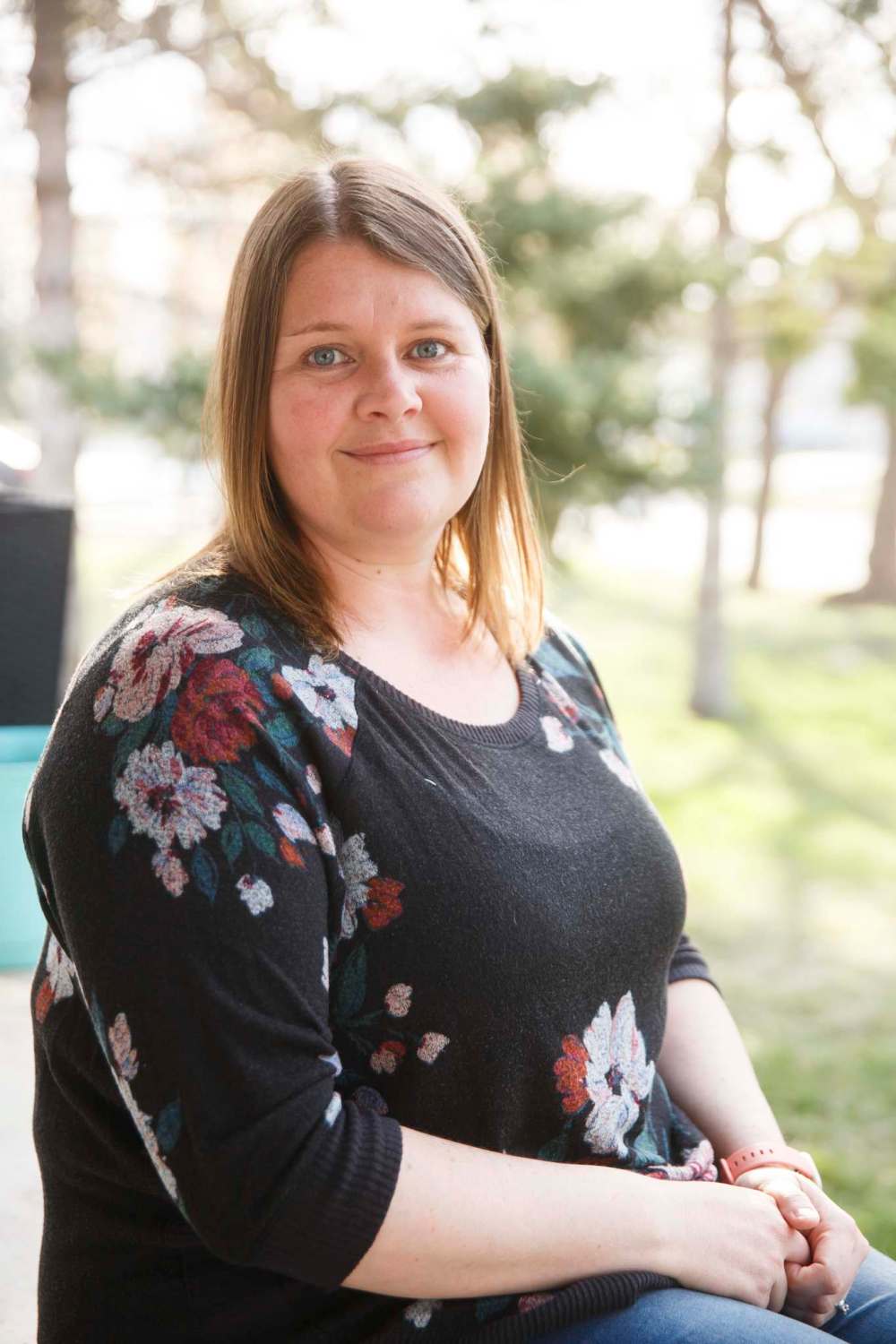
Driving to work one day in spring 2020, she realized that her only alone time was her 10-minute commute to work.
More than a year in, her routines have settled into something approximating a new normal — especially with the kids back in school — but Martin (not the Free Press reporter) still feels nervous, as if the other shoe is going to drop.
“You just don’t know,” she says. “You’re waiting for a letter to come home, or an email from the school to say, ‘There’s a contact in your school’ or something. And even just symptoms — allergies came up in the spring. You’re having to keep them home, because maybe they’ve got watery eyes, or a little bit of a headache. You’re just sort of waiting with bated breath to see if it resolves and then you start thinking about everyone you’ve been in contact with, did they wear their masks in school, and all those things.”
In the delivery room, things have also changed owing to the pandemic. For most of the past year, patients could only have one support person with them.
“Your heart just went out to these new parents,” she says. “Whether it was their first or their fourth, it was really hard because they had a vision of what their labour, delivery and recovery would look like — you know, having visitors come to the hospital to see them, grandparents being able to come in, just being able to have people come in and share in that excitement and meet the new baby. So much of that joy was sort of taken away from them.”
“Your heart just went out to these new parents.” – Labour and delivery nurse Melissa Martin
But for Martin, it was another opportunity to provide care.
“If they were trying to FaceTime, we’d hold up the phone for them,” she says. “We do our absolute best to try to make that experience still as exciting as it was.”
Her work has not only been rewarding, it’s been a bright spot.
“Our unit’s usually very happy,” Martin says. “So I think that kind of helped us get through it, because it was still such an exciting and happy time for most of our patients.”
— Jen Zoratti
Early childhood educator
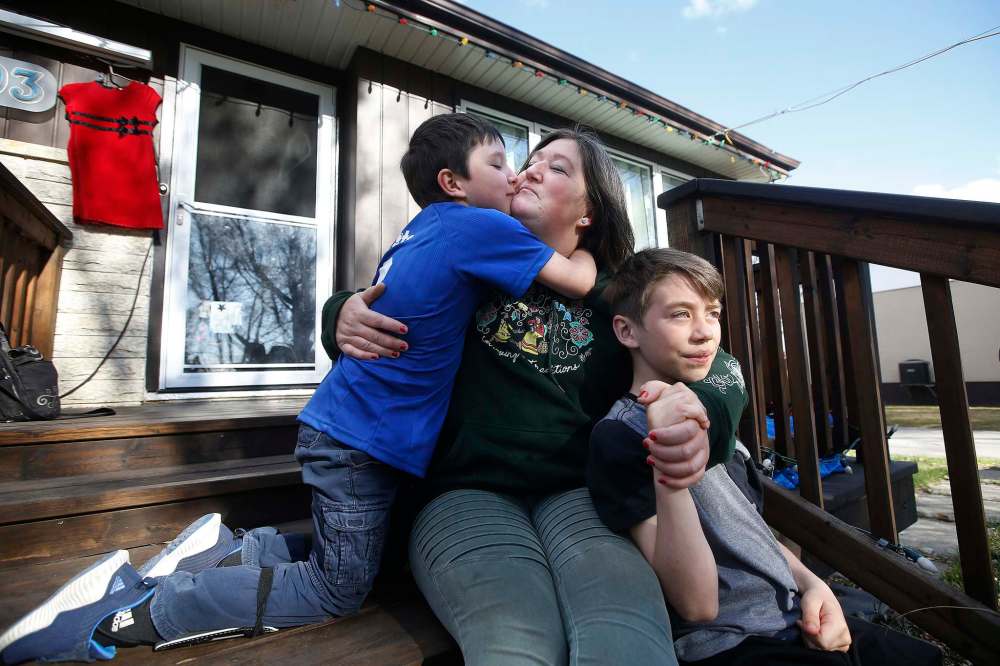
Kisa MacIsaac is exhausted. It’s not for lack of sleep — although, she doesn’t seem to get much of that either — but rather the weight of making sure everyone in her care makes it through the day feeling safe, well fed and loved.
MacIsaac, 42, has been an early childhood educator at Freight House Early Learning and Care centre for 16 years. At work, she’s responsible for the development and well-being of 12 preschoolers; at home, she’s got three of her own kids to raise.
“You put so much energy into them having just the best day and then it’s so hard to find the energy to give that same level of energy to my own children at home,” she says. “I just try to do my best… because my own children deserve that too.”
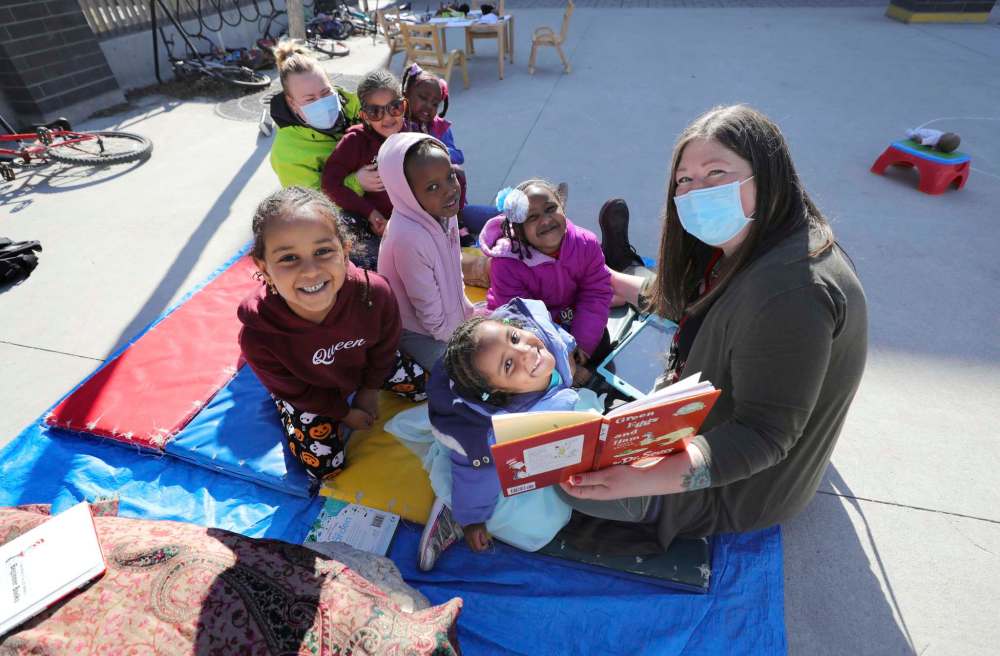
Weeknights pose the biggest challenge. MacIsaac’s husband is currently working nights and she spends several evenings facilitating virtual painting workshops from her basement. Painting offers stress relief and a connection to her Métis heritage. As a side hustle, it helps supplement her salary — childhood educators in Manitoba make just over $18 an hour on average — and it has become an even more important income stream during the pandemic.
Last March, MacIsaac took a voluntary layoff to stay home with her kids — Kalvin, 6, Oren, 10, and Delilah, 12 — while schools were closed. Homeschooling was a difficult transition for everyone.
“There were a lot of days during that shutdown where I was like, ‘OK, today we are going to spend the day outside and we’re going to make pancakes,’” she says with a laugh. “I felt like that was good enough.”
Last summer she returned to Freight House, where masks, hand sanitizing and cleaning protocols have added to her workload and anxiety levels.
“I never used to blink when a child sneezed or coughed or had a runny nose. And wow, times have changed.” – Early childhood educator Kisa MacIsaac
“I never used to blink when a child sneezed or coughed or had a runny nose,” MacIsaac says. “And wow, times have changed.”
Parents can’t go to work when kids show up with sniffles, and colleagues, many of whom are also parents, can’t come in when there’s been a close contact at school. Staff have had to become experts at covering shifts and delivering curriculum with a (masked) smile.
“I feel like that word ‘essential’ rings so true,” she says. “With no childcare, so many of us would be screwed.”
To get herself through the day, MacIsaac grabs hold of quality time wherever she can find it. Cereal for supper is inconsequential if she’s able to walk her youngest to soccer practice, read a story and tuck everyone in before collapsing into her own bed. “It’s the small things that mean a lot.”
— Eva Wasney
Teacher

Even in the best of times, Jennifer Oldfield says being a working parent means you’re always questioning yourself.
“Am I enough at work? Am I doing enough? Am I being enough?” she says. “And then you question yourself: am I enough at home? Am I being a good-enough mom? Am I doing enough at home? And then you need to kind of understand that sacrifices need to be made on both sides. You can never be perfect at work. And you can never be perfect at home.”
Oldfield, 41, is a high school English teacher in the Louis Riel School Division. She’s also mom to two little girls: Charlotte, 6, and Audrey, 4. The pandemic has added new layers of stress and anxiety to both her home and work life. Oldfield has had a series of what-if scenarios playing on a loop in the back of her mind: What if she gets sick? What if she takes COVID-19 to school, or what if she catches it at school and brings it home?
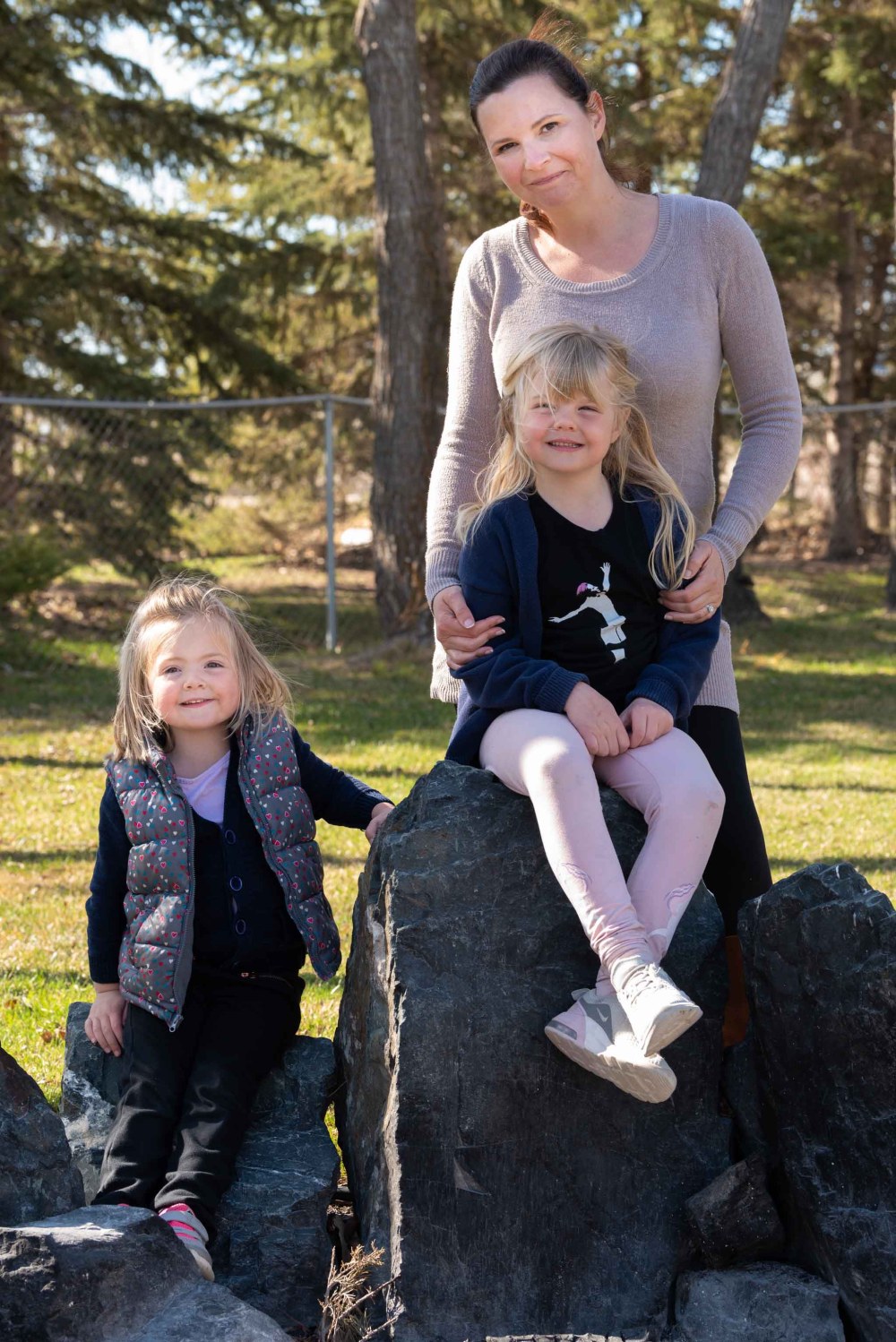
COVID-19 has made it harder to truly connect to her students, she says. “I see them half the time; we don’t get to hang out the way that we would have in the past. My classroom, when I had a classroom, was a place where kids hung out at lunch, and where we had a chance to really connect on a different level. And that just isn’t isn’t part of life right now.”
Spending time with her girls has been a balm; they can still play games and read books and climb trees — things a pandemic can’t take away. Oldfield has noticed, however, that the stress of work and life has eroded her patience. “I find myself questioning myself more, or thinking back on the day and asking myself, ‘Ugh, did I react right to that?’ Or, ‘I could have been more patient there.’ And I’m just finding that I just don’t have as much in me as I would like to have.”
That’s why self-care is so important. Oldfield says she’s suffered a bit from what psychologists call “compassion fatigue,” or the stress of taking on other people’s stress. It’s not just her current kids who need her; she also has former students who still reach out to her if they need someone to talk to.
“I did have to set some gentle boundaries in terms of just saying, ‘FYI, I’m at a bit of my limit right now, so if I don’t answer you right away, or I don’t give you what you need, I’m really sorry.’” – Teacher Jennifer Oldfield
“I did have to set some gentle boundaries in terms of just saying, ‘FYI, I’m at a bit of my limit right now, so if I don’t answer you right away, or I don’t give you what you need, I’m really sorry,’” she says. “By the same token, I think teaching and mothering have a lot of overlap. The caring part of teaching is just an extension of being a mom. My kids at school always kind of tease me about how I mother them. In a lot of ways, the caring part just comes naturally. I’m tired, but people still need to be cared for.”
And even in the most challenging of years, she wouldn’t trade it in for anything.
“I just feel like I’m blessed to be able to be a carer all day long. I really do. A lot of people have to find their spaces to care for other people and have connection, and to have those moments where you see people for who they really are, their true selves. And I get to do that all day. I get to do that at work. I get to do that at home. And I think that that’s a blessing.”
— Jen Zoratti
Parental caregiver
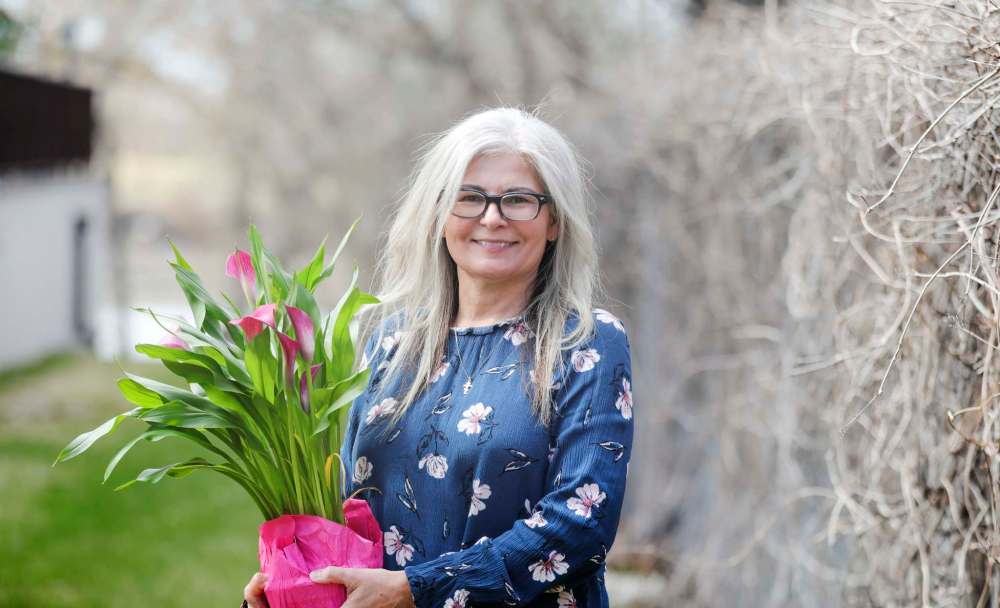
Taking care of the people who raised you is a complicated responsibility.
For Nadine Orchard, the transition from daughter to caregiver crystallized when she started making life-altering decisions on behalf of her elderly parents. When her dad got sick, she advocated for him at the hospital; when he died in 2013, she handled the funeral arrangements; and when it was time to move her mom into an assisted living facility four years later, she managed the sale of her childhood home.
“It’s a huge responsibility… you’re making the decision with them in your mind and for their best interest,” she says. “You did that with your children and now you’re doing it for your mom.”
Orchard and her sister-in-law share caregiving duties for her 80-year-old mother, Virginia, who has Alzheimer’s and now lives in a personal care home. While she no longer needs to grocery shop or provide medical care for her mom, Orchard still stops by for a visit every day on the way home from work.
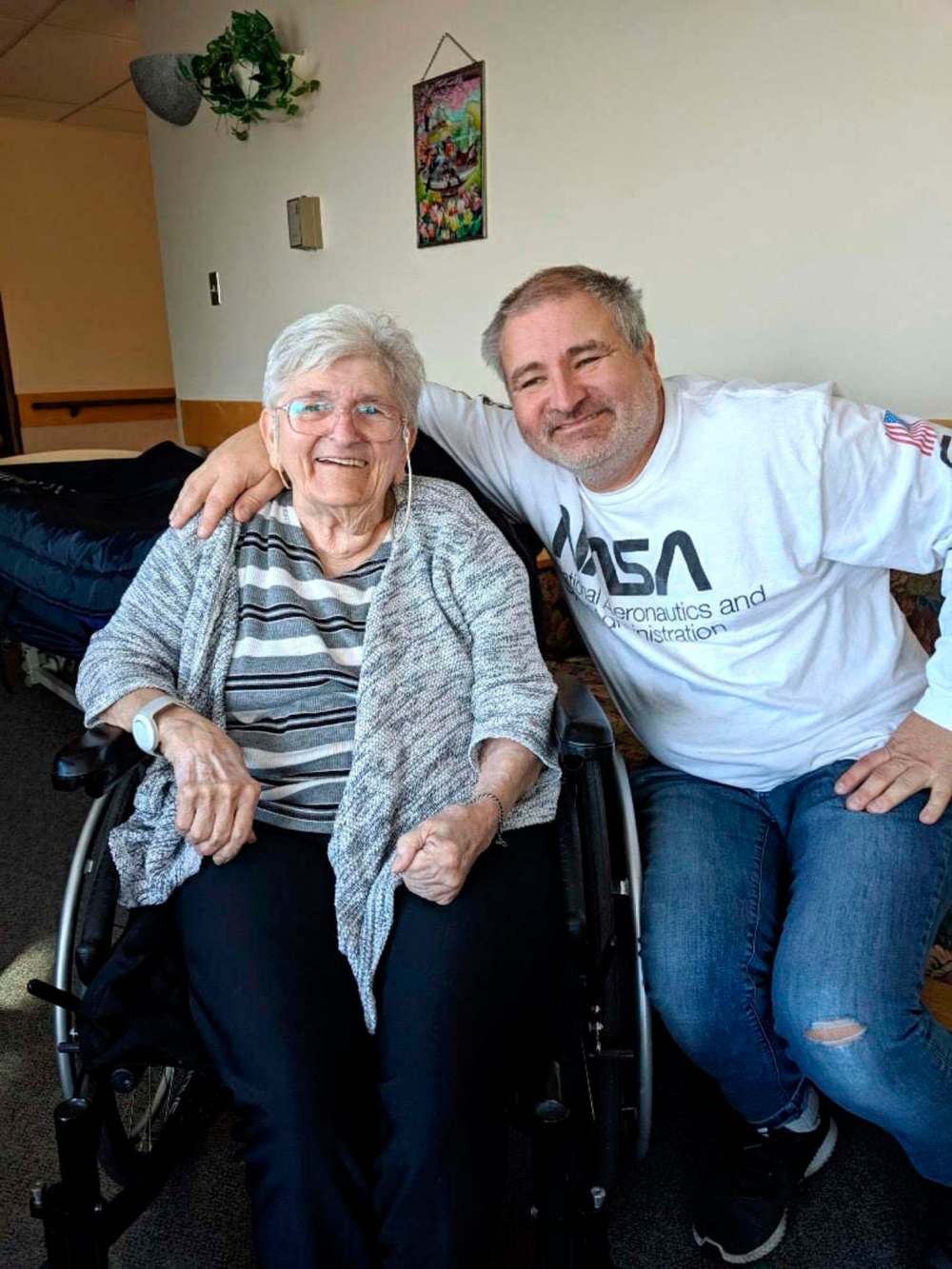
“I don’t want her to feel abandoned,” she says. “Even if it’s just a short visit to turn on the Jets game for her — she loves her Jets and her Bombers.”
The visits are important for everyone’s mental health, even if they leave little time to unwind after a long day at the office. “It makes for late suppers,” Orchard says. “I get home after 7 p.m., make supper and get ready to go again for the next day.”
Not being able to see Virginia in-person last year amid the pandemic was difficult. They stayed in touch over Zoom and FaceTime, but her mother’s health and cognition suffered. Orchard’s brother Todd died last year after a long battle with cancer and Virginia isn’t aware her son has passed away.
“Although she knows who I am and knows our family, she doesn’t ask about my brother anymore,” Orchard says.
The emotional toll of watching her loved ones deteriorate while also taking charge of their care has been the hardest part of the journey.
“I don’t want her to feel abandoned. Even if it’s just a short visit to turn on the Jets game for her – she loves her Jets and her Bombers.” – Parental caregiver Nadine Orchard
“We know no one’s gonna live forever, but it doesn’t make it any easier.”
She’s thankful to have a strong support network. Her husband, two daughters and an out-of-town cousin have been valuable sounding boards, and her involvement in Caregiving with Confidence, a local non-profit support group, has been nothing short of a lifeline.
“It was like finding a little piece of gold in amongst a very dirty hill that I seemed to be in at the time,” Orchard says of the organization. “I’ve made a lot of friends through the group that I can reach out to at any time.”
Her Christian faith has also helped her cope.
“I feel very close to God and I feel a lot of sense of peace through that with the decisions I’ve made.”
— Eva Wasney
Indigenous birth helper
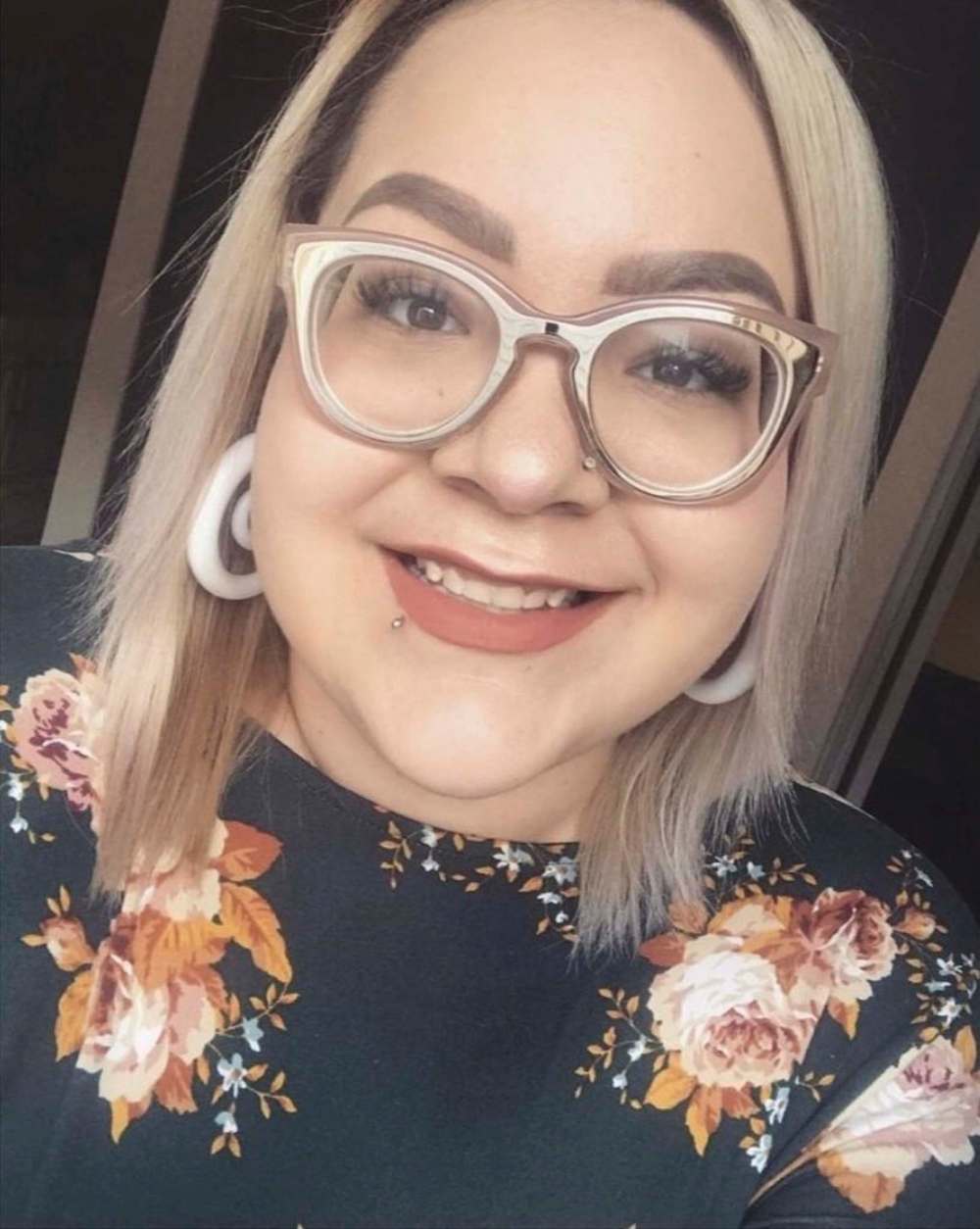
For Destiny Kisiloski, the past year has brought some incredibly good luck — and also some incredibly bad luck.
First, the good luck: last April, early into the pandemic, Kisiloski and her husband won the Western 649 lottery. “It just allowed us to do everything we wanted, like pay off our student loans, our car loans and put down a big chunk on our first home purchase,” she says.
The unexpected windfall also alleviated a few stressors during what was gearing up to be a challenging time. Kisiloski, 30, is an Indigenous birth helper with Wiijii’idiwag Ikwewag, which provides culturally rooted support and teachings to Indigenous mothers and families throughout Manitoba. Birth helpers are full-spectrum doulas who provide pre- and post-partum care, labour and birth support, and breastfeeding support.
Kisiloski, who was born and raised in Winnipeg but has roots in Fisher River Cree Nation, had to figure out how to support her moms — all 16 of them — virtually after Manitoba’s COVID-19 cases started inching higher.
“A lot of our moms don’t have cellphones or they don’t have texting or they don’t have internet, so it’s really hard to communicate with them.” – Indigenous birth helper Destiny Kisiloski
“A lot of our moms don’t have cellphones or they don’t have texting or they don’t have internet, so it’s really hard to communicate with them,” she says. “And then even with attending births, the hospitals now have restrictions where they can only have one support person so then they’re having to choose between partner or their parents. That’s really challenging as well.”
Meanwhile, she was also helping her 17-year-old foster son navigate remote learning.
“That’s when we started just having the challenges, because it was really hard for him to stay motivated and not want to be on his phone all day, or play video games,” she says. “And then we found a school that was supposed to be more one on one and he could go twice a week. But even that, I think at that point, his mental health was really affected by never getting to go out anymore, never getting to see people.”
“And then we found a school that was supposed to be more one on one and he could go twice a week. But even that, I think at that point, his mental health was really affected by never getting to go out anymore, never getting to see people.” – Indigenous birth helper Destiny Kisiloski
And then, the bad luck: at the end of December, Kisiloski’s entire family contracted COVID-19. Her husband and son had minimal symptoms, but the virus hit Kisiloski hard: she ended up being on a ventilator for two weeks. Her recovery took months; she couldn’t look at a screen for more than 10 minutes without getting a migraine.
Now, she’s feeling almost back to normal. Her moms have had their babies. She’s moving to the country in June, and wants to foster more children.
“My husband grew up in the (foster) system and we both share that love for helping children,” Kisiloski says. “Before being a birth helper, I was an ECE (early childhood educator) for 11 years. I really do love just helping children develop and grow, and there’s so many that need a home.”
— Jen Zoratti
eva.wasney@freepress.mb.ca
Twitter: @evawasney
jen.zoratti@freepress.mb.ca
Twitter: @JenZoratti


Jen Zoratti is a Winnipeg Free Press columnist and author of the newsletter, NEXT, a weekly look towards a post-pandemic future.
Our newsroom depends on a growing audience of readers to power our journalism. If you are not a paid reader, please consider becoming a subscriber.
Our newsroom depends on its audience of readers to power our journalism. Thank you for your support.

